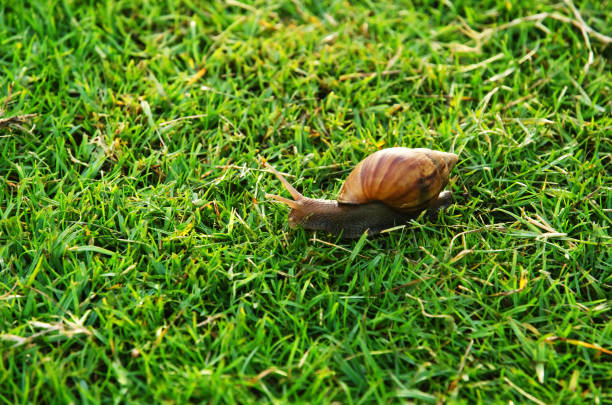Slugs and snails will cause damage to your lawn, and recent weather has brought them out. They enjoy feeding on fresh grass, and it is important to know how to prevent them from causing any damage.
Copper Tape
This is a common method to deter slugs, as the trail causes a reaction and will put them off of coming any closer. This is a good and harmless way to keep them away from your lawn or plants. Simply stick down as a border around plant pots or your lawn and it will act as an invisible wall for snails.
Beer Trap
Slugs love the scent of beer, which is why beer traps are a great way to get rid of them. Simply any cheap beer poured into a small container will lure them into climbing in and drowning. Place the trap near to a spot where you commonly see them hang out at, and check daily to see how effective it has been. Dispose of dead creatures in compost, or leave them out for the wildlife to eat.
If you do not have access to beer, or want to save money, you can mix yeast, flour, sugar and water together and they will like it just as much.
Crushed Eggshells
These can be used as a barrier as the sharp texture will draw snails away. Dry in the oven and crush in a blender, and place around what you want to protect, and slugs should avoid passing it. Make sure you prepare the shells properly, as egg residue could draw even worse pests, like rodents, to visit.
Hand picking
This is the most simple way to keep snails and slugs away, as moving them off of your lawn will slow them down. We recommend avoiding this if you can, as they will likely come back.
Luring Predators
Luring predators like birds can be effective, as slugs are prey and will get eaten. The best way is to offer them food in bird feeders (seeds, berries, worms), or you could plant things that birds are attracted to, especially berries. This is not the quickest way, but may pair well with beer traps.
Slug Pellets
If you are not having any luck, you can use slug pellets. They are the most effective, killing them quickly, but they are dangerous to wildlife and should only be used in a dedicated growing room where children and pets do not have access.

